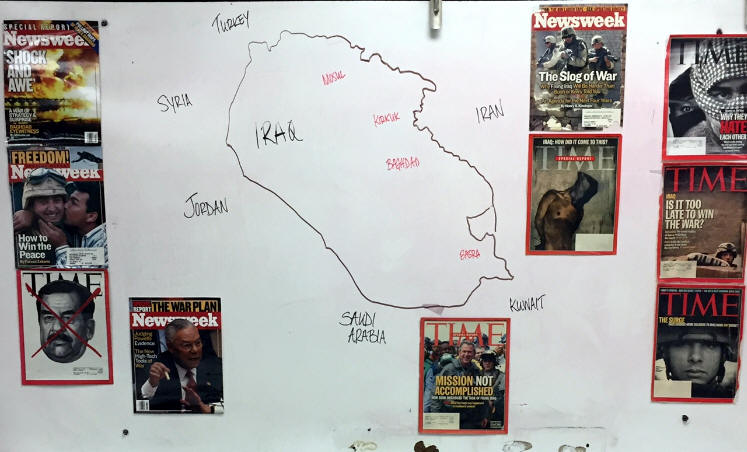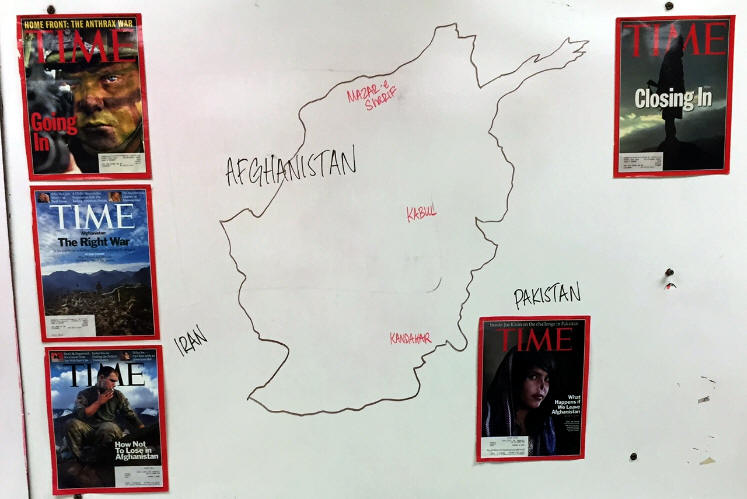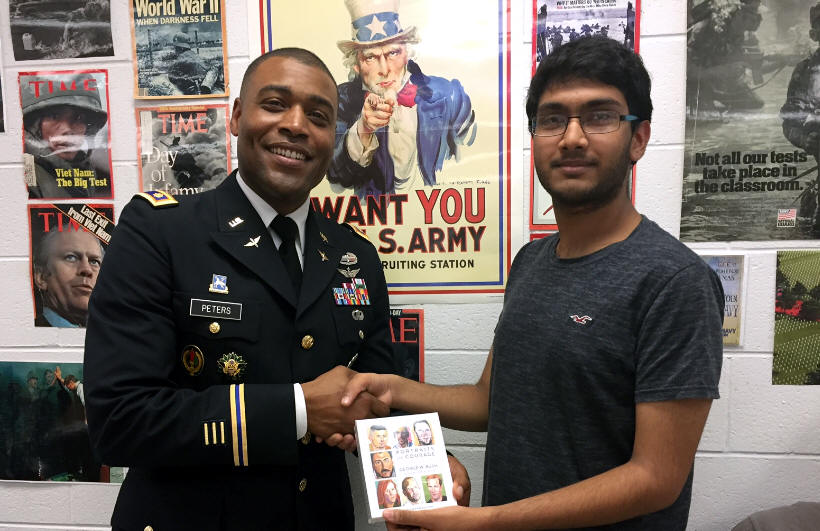
Major Derrick Peters- U.S. Army

Fairooz present Major Derrick Peters with the Portraits of Courage audio book by President George W. Bush. Major Peters discussed his experiences in Iraq and Afghanistan. This discussion took place on June 14th, 2017.
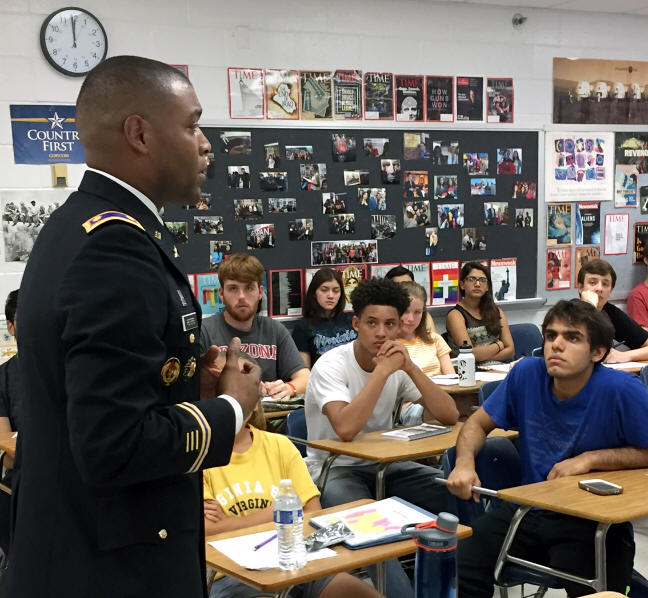
Gio (right)- Did you ever think "I want to be the man that that kills or captures Usama bin Laden or Saddam Hussein"? ANSWER- I didn't want to capture either of them personally, but I did wanted them captured or killed. It would be a big win for the USA.
Ryan (left back row) In World War Ii we
fire-bombed Tokyo and Dresden, Germany. Many civilians were killed but those
attacks helped end the war. In the fight against ISIS should we not be concerned
about civilian deaths and have similar raids like we did in WWII?
ANSWER-
I think we should look at it from the context of our own
neighborhoods/communities.
If we had an insurgency in Herndon, VA, would the
right course of action be to flatten the city regardless of civilian lives lost…
I don’t think so.
Although fire-bombing and mass bombing may have had
a significant effect in the past, I’m not sure if it's the right strategy for
today’s fight.
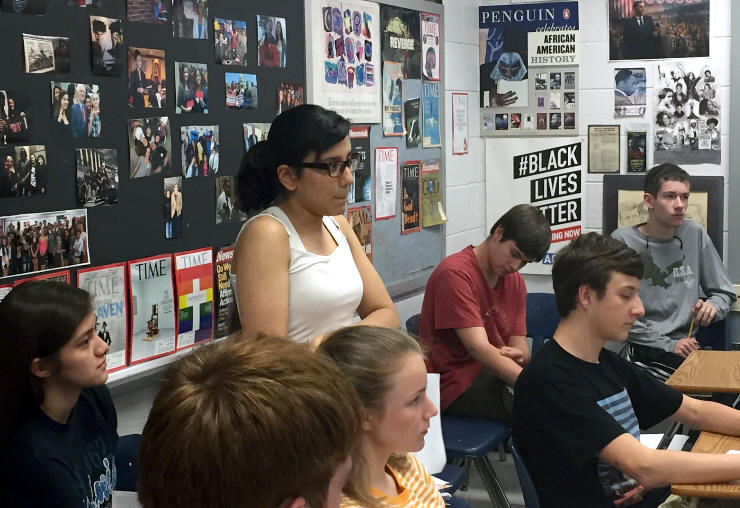
Fatimah- Have you seen the move Taking Chance and if so would you like to do escort duty? ANSWER- - I am not familiar with the film, however, it's a serious responsibility that every military service member may have to undertake. My current duties require that I be prepared for a phone call directing me to notify a spouse or next of kin family member of the loss of their soldier. I have to be strong for the family, while delivering this very devastating news. This may sound strange, but it is an honor to perform this duty. I would rather a service member deliver the news to my family unlike what was done many years ago, when taxi company would perform this task.
Paul (back row) There were a lot of anti-Iraq war demonstrations in the U.S. Did that bother you and your comrades? ANSWER- Yes it did. But we are serving our nation so that American citizens can have the freedom to say those things. My brothers and sisters in arms and I are going into harms way for many protesters that will never spend a day serving their country in any capacity.
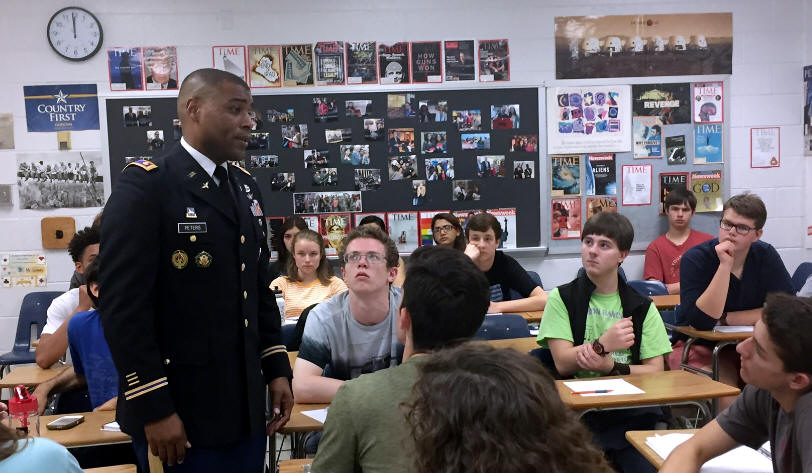
Spencer (right glasses) If you could go back in time and meet President Bush would you advise him not to launch the war in Iraq? ANSWER- You can't second guess a leader. They have to make the call at that time.
Misha (left of Major Peters) Which country did you feel you made the most progress in and do you feel that progress holds today? ANSWER- Afghanistan. Since I already knew the language I was much better prepared to make connections with the people to make a difference in their country.
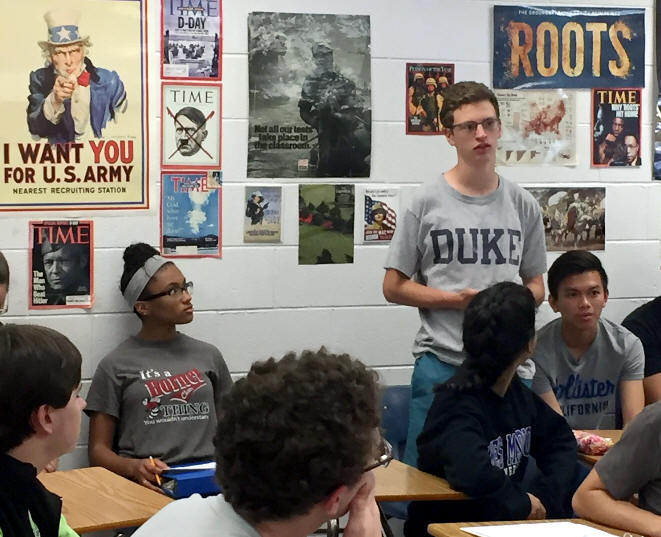
Jon- Many recent vets have launched political careers. Do you have any interest in running for office? ANSWER- NO!!!!!!! I want to enjoy the rest of my time and hopefully relaxing with my grandkids some day.
Kayla- I assume the geography you experienced is very different compared to this area. How would you describe it and did you encounter any unusual animals? ANSWER- The geography is Iraq is very flat. In Afghanistan there is a huge mountain range that is difficult to access without a helicopter. I encountered huge camel spiders in Iraq. They were the size of my hand or bigger, and they were aggressive; they would chase you.
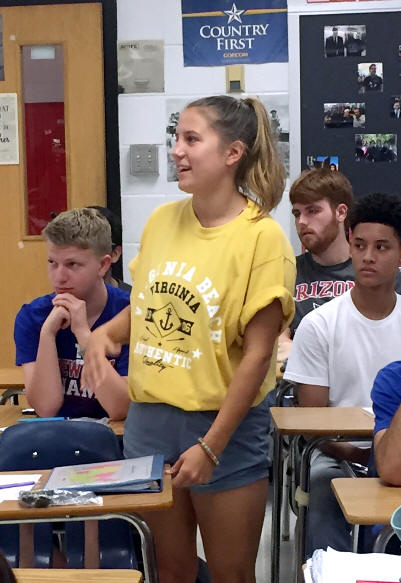
Katia- What was a typical day like in Iraq? ANSWER- In Iraq, I living in one of Saddam Hussein's old palaces, which was eventually turned into the U.S. Embassy. Everyone around was either American or a part of the coalition forces. We had great food; I worked with great people; and the threat in that area was relatively low. Afghanistan was much different. I lived and worked daily with my Afghan partners. They were a great bunch of guys, but the threat was much higher because of the close proximity to the locals.
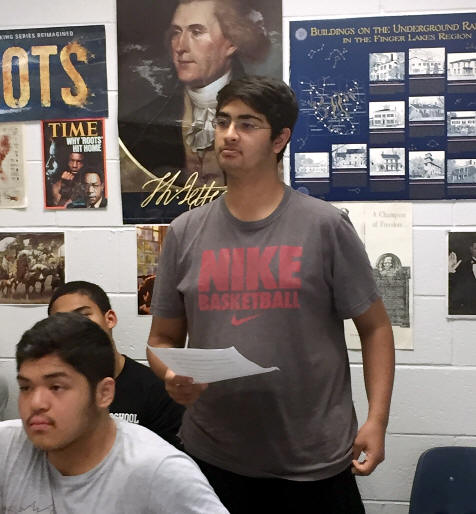
Haroon- What was a typical day like in Afghanistan? ANSWER- Me and my team lived in a small compound on an Afghan base, surrounded by Afghan soldiers. The normal day was pretty routine, working shoulder to shoulder training, advising, and assisting our Afghan partners. On day however, was not routine at all. We were attacked around 4AM with rockets and small arms gun fire. We experienced "the fog of war." We didn't know where the enemy was (in our perimeter or still outside).
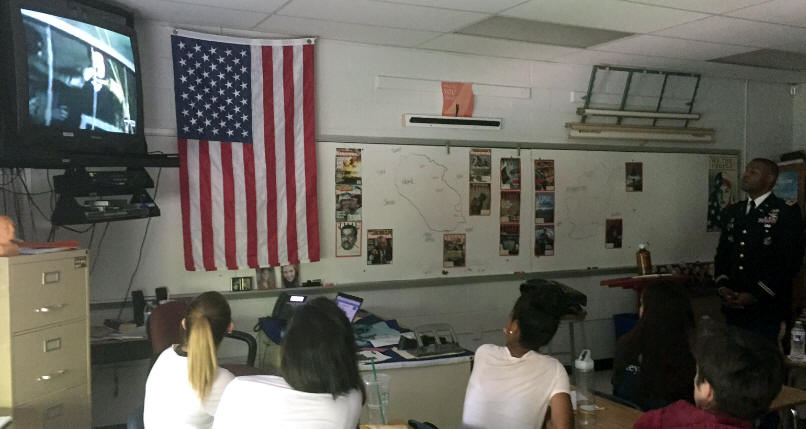
Major Peters watched the execution of Saddam Hussein and commented on that.
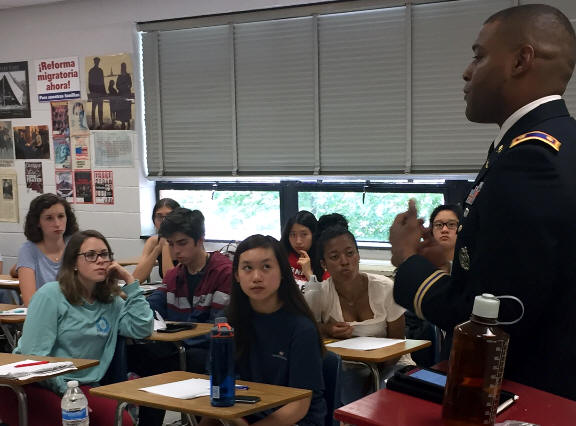
Jasmee (front right) What do you think Iraq and Afghanistan will be like in five years? ANSWER-I'm not certain it will be much different than it is now. I think it will depend on how we use our forces and how we leverage the US State Department to build the nation [Afghanistan] back up. I believe we may need to re-look our strategy in Afghanistan.
Kierra, (second right) If you were going to be deployed again would you prefer Iraq or Afghanistan? ANSWER- Iraq would be my choice, but I hope we are successful and don't have to send any more troops to either nation.
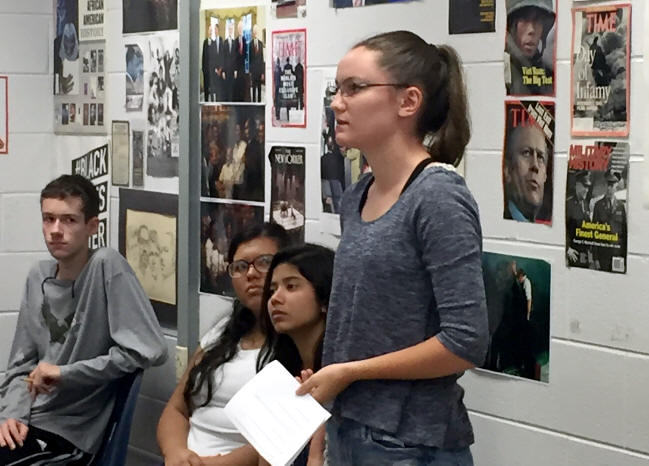
Courtney- Where were you when the Golden Mosque was destroyed in Iraq? ANSWER- I think I was back in the states but I really can't recall.
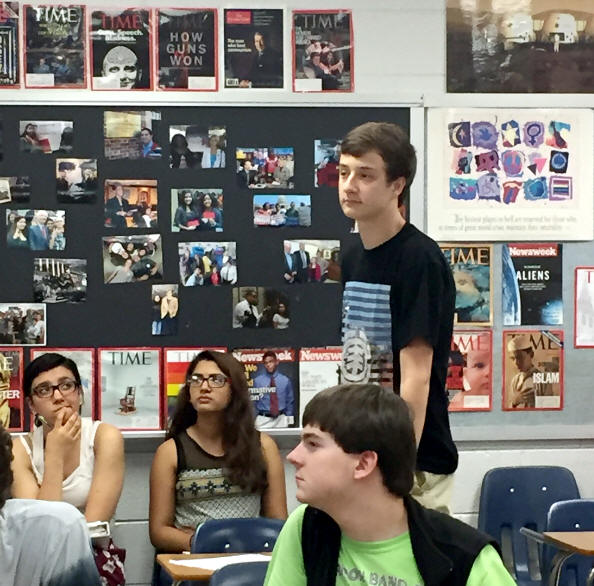
Barrett- Can you describe what combat is like? ANSWER- Combat on TV and in video games is glorified for entertainment and very inaccurate. Three of my security officers were killed by an Afghan that we were working with. Turned out, the Afghan was a part of the insurgency. Real combat is living daily, for a year, with the knowledge that this may be your last day.
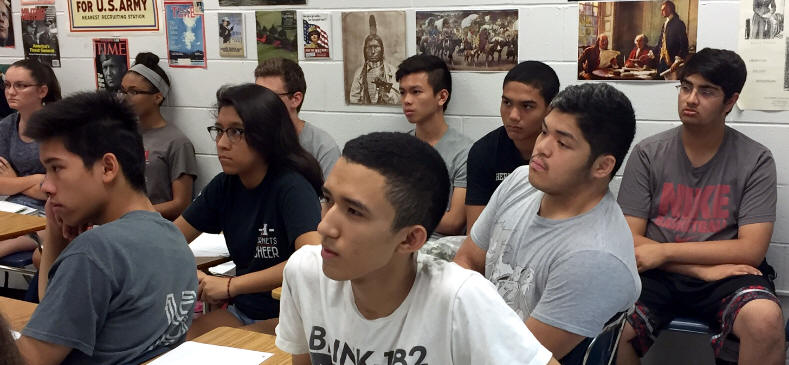
Mike (front, right) What is your 9/11 story? ANSWER- I was a college senior, getting ready for work. I thought the first plane was an accident. When the second plane hit my heart sank. I knew American was under attack and it devastating.
Andrea (middle row, left) What made you decide to join the armed forces? ANSWER- I grew up as a military brat, my dad was in the army. I also had a college scholarship.
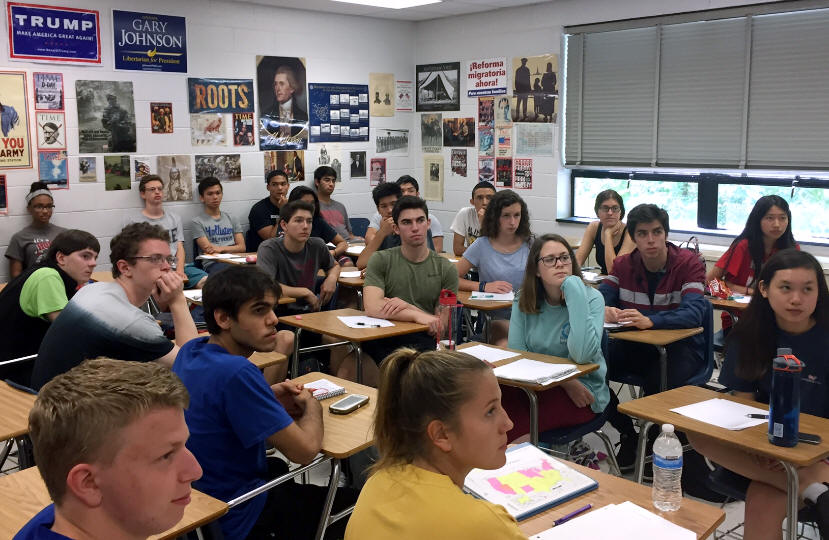
Rachel (back row, second right) How did your way of thinking change from being a civilian to being a soldier? ANSWER- I never had any doubts about being a solider, I can't imagine what else I would do.
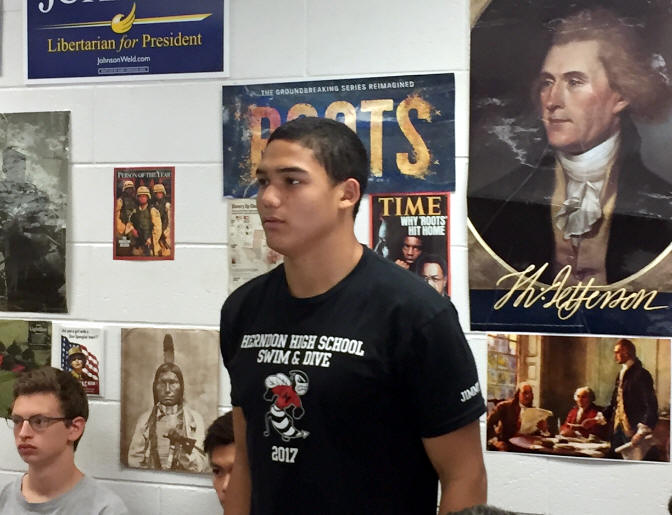
Austin- Did you ever have conversations with the enemy? ANSWER- Possibly because they looked like everyone else.
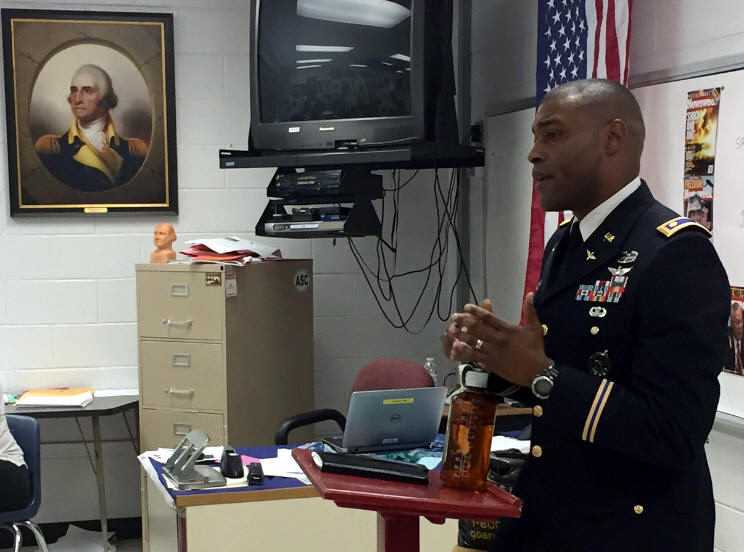
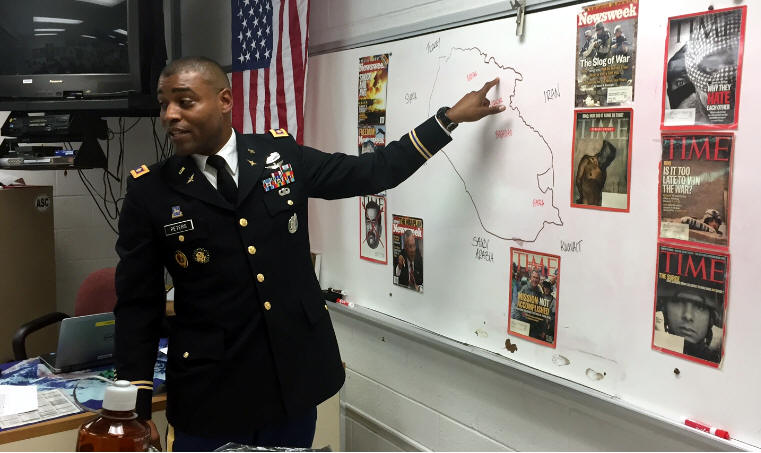
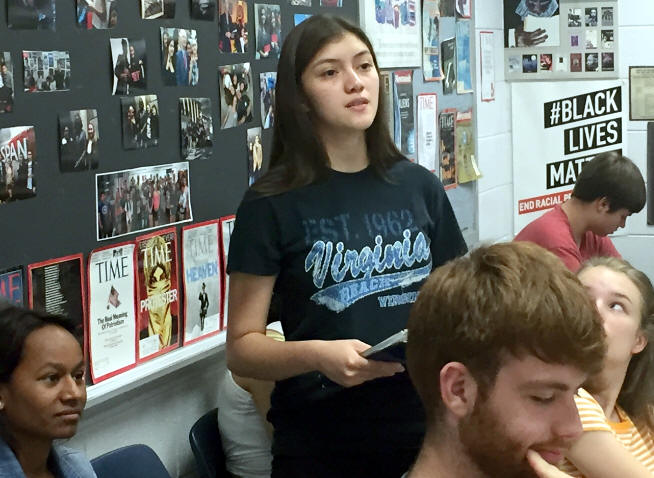
Gabby- Do you think it's possible to peacefully persuade the most radical elements in Afghanistan and Iraq to change their ways or is force the only thing they understand? ANSWER- Force is not the only thing they understand. It's more helpful to support them to change than to destroy the enemy. Outside countries like the USA need to help them build social services like schools and hospitals so they understand how good citizens behave and interact with others.
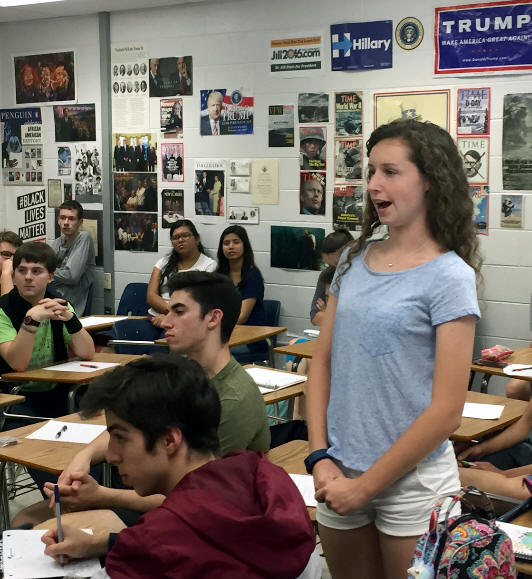
Sydney- What were your thoughts when Saddam Hussein was executed? ANSWER- It was great and it was good that the U.S. military was not involved.
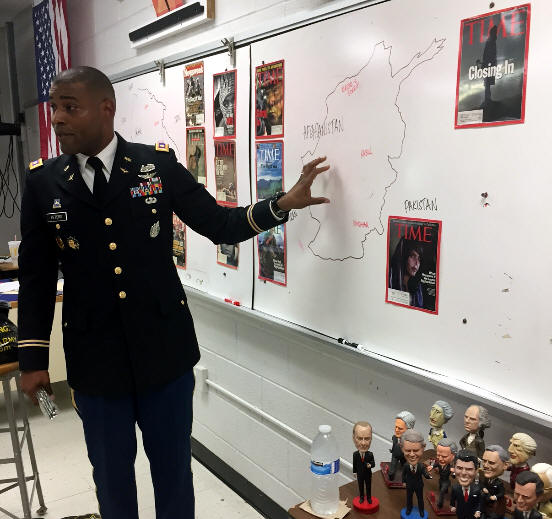
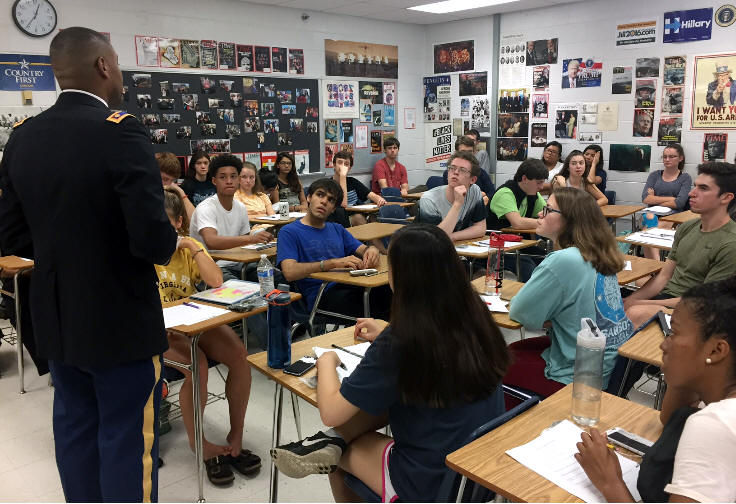
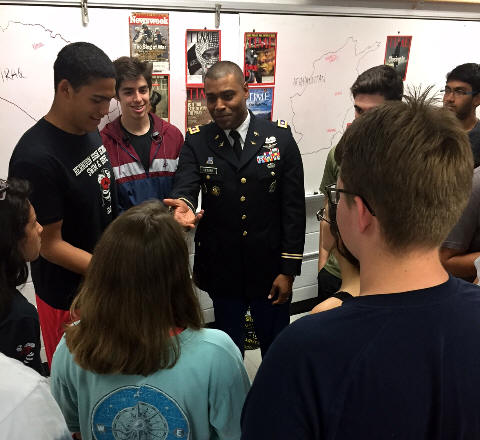
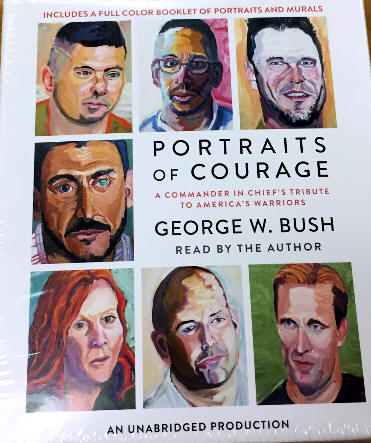

Sarah (3rd left) What is the best memory of your military experience? ANSWER- It was really cool to live in the presidential palace in Iraq. I met a lot of people and we had a lot of fun together. I am also happy that I have gotten to do so many different jobs in my career as a pilot and intelligence specialist.
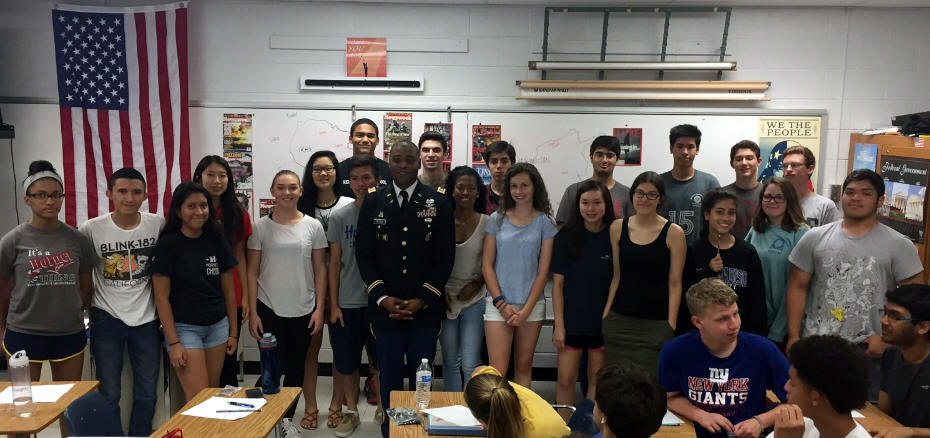
Kim (4th left) What do you want us to take away from your visit today? ANSWER- You need to prepare so opportunity can come. Everything you need is right here. You are in a rough state now, like an unformed diamond. If you work hard you will become the diamond.
Kaitlin (5th left) If you're comfortable responding to this, how would you evaluate President Bush and President Obama as Commander in Chief? ANSWER- They made decisions with the cards they were dealt. It's not appropriate for me to judge my commander.
Tammy (6th left) Did you have any first-hand experience with the divide between Sunni Muslims and Shia Muslims in Iraq? ANSWER- I was aware of the violence but there were Sunni's and Shia's working in my office and they seem to get along fine.
